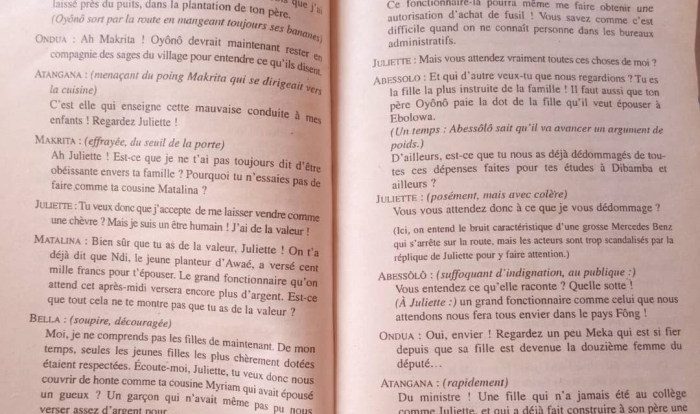The “Hamlet for instance crossword clue” beckons crossword enthusiasts to unravel the enigmatic depths of Shakespeare’s iconic tragedy. This timeless play has captivated audiences for centuries, inviting exploration of its profound themes, complex characters, and enduring cultural impact.
Within the labyrinthine realm of Hamlet’s Denmark, we encounter a prince grappling with existential quandaries, familial strife, and the treacherous machinations of a corrupt court. Through his introspective soliloquies and poignant interactions, Hamlet emerges as a figure of both brilliance and vulnerability, embodying the timeless human struggle with mortality, madness, and the search for meaning.
Hamlet’s Character
Hamlet is a complex and enigmatic character. He is a brilliant young prince who is haunted by the ghost of his father and by the knowledge that his uncle has murdered him. Hamlet is torn between his desire for revenge and his moral scruples.
He is also deeply introspective and philosophical, and his famous soliloquies explore the nature of life, death, and the meaning of existence.
Relationships with Other Characters
- Claudius: Hamlet’s uncle and the new king of Denmark. Hamlet suspects Claudius of murdering his father and plots to avenge his death.
- Gertrude: Hamlet’s mother and the new queen of Denmark. Hamlet is disgusted by his mother’s hasty remarriage to Claudius and suspects that she was complicit in his father’s murder.
- Ophelia: Hamlet’s love interest. Hamlet is initially drawn to Ophelia’s innocence and beauty, but he later becomes cruel and dismissive towards her, driven by his grief and madness.
- Polonius: Ophelia’s father and the Lord Chamberlain of Denmark. Polonius is a pompous and meddling old man who tries to control his daughter’s life and keep her away from Hamlet.
- Horatio: Hamlet’s loyal friend and confidant. Horatio is the only character in the play who Hamlet trusts completely.
Famous Soliloquies
- “To be or not to be, that is the question” (Act III, Scene I)
- “O, that this too too solid flesh would melt” (Act I, Scene II)
- “Now I am alone” (Act II, Scene II)
Themes in Hamlet: Hamlet For Instance Crossword Clue

Hamlet explores a wide range of themes, including:
Revenge
The play is driven by Hamlet’s desire to avenge his father’s murder. However, Hamlet is torn between his desire for revenge and his moral scruples. He knows that killing Claudius would be a sin, but he also feels that he must avenge his father’s death.
Madness, Hamlet for instance crossword clue
Hamlet’s grief and anger over his father’s murder drive him to the brink of madness. He begins to see ghosts, talk to himself, and behave erratically. However, it is unclear whether Hamlet is truly mad or whether he is simply pretending to be mad in order to escape punishment for his actions.
Existentialism
Hamlet is a deeply introspective character who is constantly questioning the meaning of life and death. He is haunted by the knowledge that he is mortal and that his life will eventually end. This existential angst leads him to contemplate suicide.
Historical and Cultural Context

Hamlet was written during the Elizabethan era, a time of great social and political change. The play reflects the anxieties and uncertainties of the period, as well as the prevailing philosophical and religious beliefs.
Historical Context
- The play was written shortly after the death of Queen Elizabeth I and the accession of King James I to the English throne. This was a time of political instability and religious conflict.
- The play reflects the Elizabethan preoccupation with death and the afterlife. The play is full of references to ghosts, skulls, and other symbols of mortality.
Cultural Context
- The play was written in the context of the Protestant Reformation. The play reflects the Protestant emphasis on individual conscience and the importance of faith.
- The play also reflects the Elizabethan fascination with the occult and the supernatural. The play is full of references to witches, magic, and other supernatural phenomena.
Adaptations of Hamlet
Hamlet has been adapted into numerous stage productions, films, and novels over the centuries. Some of the most famous adaptations include:
Stage Productions
- The play has been performed on stage continuously since its first production in 1603.
- Some of the most famous stage productions of Hamlet include those by Laurence Olivier (1948), Richard Burton (1964), and Kenneth Branagh (1996).
Films
- The play has been adapted into film numerous times, including versions by Laurence Olivier (1948), Franco Zeffirelli (1990), and Kenneth Branagh (1996).
- Each film adaptation of Hamlet has its own unique interpretation of the play, reflecting the director’s vision and the cultural context of the time.
Novels
- The play has also been adapted into several novels, including those by Charles Lamb (1807), William Shakespeare (1843), and Howard Jacobson (2000).
- These novels provide a different perspective on the play, allowing readers to experience the story in a new way.
Hamlet’s Influence on Literature and Culture

Hamlet has had a profound influence on literature and culture for centuries. The play has been referenced and parodied in countless works of art, literature, and music.
Literature
- Hamlet has been the inspiration for numerous other works of literature, including Goethe’s Faust, Melville’s Moby-Dick, and Joyce’s Ulysses.
- The play’s characters and themes have been explored and reinterpreted by writers from all over the world.
Culture
- Hamlet has also had a significant impact on popular culture. The play’s characters and themes have been referenced in countless films, television shows, and songs.
- The play has also been the inspiration for numerous works of art, including paintings, sculptures, and operas.
Helpful Answers
What is the significance of Hamlet’s soliloquies?
Hamlet’s soliloquies provide profound insights into his inner thoughts and emotions, revealing his struggles with morality, grief, and the meaning of existence.
How does the character of Hamlet reflect the complexities of human nature?
Hamlet embodies both the brilliance and vulnerability of humanity, grappling with existential questions while confronting the treachery and corruption of the world around him.
What are the major themes explored in Hamlet?
Hamlet delves into timeless themes of justice, revenge, the nature of madness, and the complexities of human relationships.
